Related Research Articles

The Brady Handgun Violence Prevention Act, often referred to as the Brady Act, the Brady Bill, or the Brady Handgun Bill is an Act of the United States Congress that mandated federal background checks on firearm purchasers in the United States. It also imposed a five-day waiting period on purchases until the National Instant Criminal Background Check System (NICS) was implemented in 1998. Introduced by U.S. representative Chuck Schumer of New York, the Brady Act was a landmark legislative enactment during the Clinton administration. The act was appended to the end of Section 922 of title 18, United States Code. The intention of the act was to prevent persons with previous serious convictions from purchasing firearms.
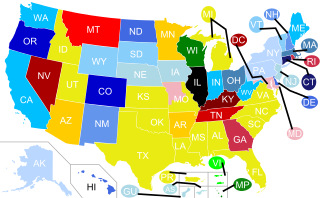
The United States has inherited sodomy laws which constitutionally outlawed a variety of sexual acts that are deemed illegal, illicit, unlawful or unnatural from the colonial laws in the 17th century. While they often targeted sexual acts between persons of the same sex, many sodomy-related statutes employed definitions broad enough to outlaw certain sexual acts between persons of different sexes, in some cases even including acts between married persons.

The Omnibus Crime Control and Safe Streets Act of 1968 was legislation passed by the Congress of the United States and signed into law by President Lyndon B. Johnson that established the Law Enforcement Assistance Administration (LEAA). Title III of the Act set rules for obtaining wiretap orders in the United States. The act was a major accomplishment of Johnson's war on crime.
Gun laws in the United States regulate the sale, possession, and use of firearms and ammunition. State laws vary considerably, and are independent of existing federal firearms laws, although they are sometimes broader or more limited in scope than the federal laws.
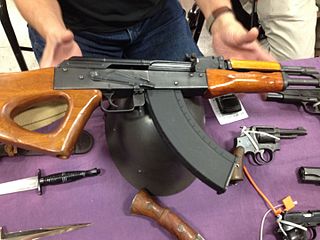
Gun show loophole is a political term in the United States referring to the sale of firearms by private sellers, including those done at gun shows, that do not require the seller to conduct a federal background check of the buyer. This is also called the private sale exemption. Under U.S. federal law, any person may sell a firearm to a federally unlicensed resident of the state where they reside, as long as they do not know or have reasonable cause to believe that the person is prohibited from receiving or possessing firearms.
In the United States, the right to keep and bear arms is modulated by a variety of state and federal statutes. These laws generally regulate the manufacture, trade, possession, transfer, record keeping, transport, and destruction of firearms, ammunition, and firearms accessories. They are enforced by state, local and the federal agencies which include the Bureau of Alcohol, Tobacco, Firearms and Explosives (ATF).
District of Columbia v. Heller, 554 U.S. 570 (2008), is a landmark decision of the Supreme Court of the United States. It ruled that the Second Amendment to the U.S. Constitution protects an individual's right to keep and bear arms—unconnected with service in a militia—for traditionally lawful purposes such as self-defense within the home, and that the District of Columbia's handgun ban and requirement that lawfully owned rifles and shotguns be kept "unloaded and disassembled or bound by a trigger lock" violated this guarantee. It also stated that the right to bear arms is not unlimited and that certain restrictions on guns and gun ownership were permissible. It was the first Supreme Court case to decide whether the Second Amendment protects an individual right to keep and bear arms for self-defense or whether the right was only intended for state militias.
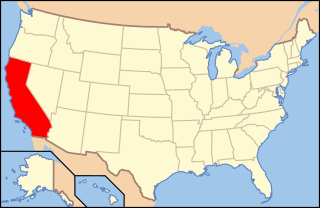
Gun laws in California regulate the sale, possession, and use of firearms and ammunition in the state of California in the United States.

Gun laws in Florida regulate the sale, possession, and use of firearms and ammunition in the state of Florida in the United States.

Gun laws in New York regulate the sale, possession, and use of firearms and ammunition in the U.S. state of New York, outside of New York City which has separate licensing regulations. These regulations are very strict in comparison to the rest of the United States.
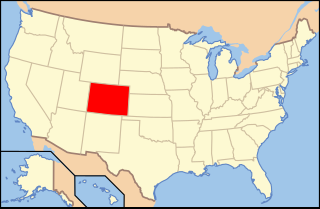
Gun laws in Colorado regulate the sale, possession, and use of firearms and ammunition in the state of Colorado in the United States.

Gun laws in the District of Columbia regulate the sale, possession, and use of firearms and ammunition in Washington, D.C.

Gun laws in Illinois regulate the sale, possession, and use of firearms and ammunition in the state of Illinois in the United States.
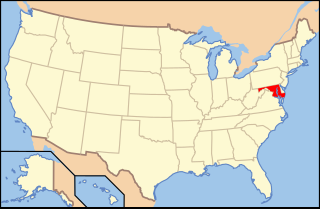
Gun laws in Maryland regulate the sale, possession, and use of firearms and ammunition in the U.S. state of Maryland.

Gun laws in Pennsylvania regulate the sale, possession, and use of firearms and ammunition in the Commonwealth of Pennsylvania in the United States.
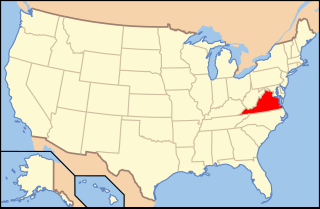
Gun laws in Virginia regulate the sale, possession, and use of firearms and ammunition in the Commonwealth of Virginia in the United States.
The New York Secure Ammunition and Firearms Enforcement Act of 2013, commonly known as the NY SAFE Act, is a gun regulation law in the state of New York. The law was passed by the New York State Legislature and was signed into law by Governor of New York Andrew Cuomo in January 2013. The legislation was written in response to the Sandy Hook Elementary School shooting in Newtown, Connecticut, and the Webster, New York, shooting. Cuomo described the law as the toughest gun control law in the United States.

Proposals for universal background checks would require almost all firearms transactions in the United States to be recorded and go through the National Instant Criminal Background Check System (NICS), closing what is sometimes called the private sale exemption. Universal background checks are not required by U.S. federal law, but at least 21 states and the District of Columbia currently require background checks for at least some private sales of firearms.

In the United States, a red flag law is a gun violence prevention law that permits a state court to order the temporary removal of firearms from a person who they believe may present a danger to others or themselves. A judge makes the determination to issue the order based on statements and actions made by the gun owner in question. Refusal to comply with the order is punishable as a criminal offense. After a set time, the guns are returned to the person from whom they were seized unless another court hearing extends the period of confiscation.

The history of concealed carry in the United States is the history of public opinion, policy, and law regarding the practice of carrying concealed firearms, especially handguns.
References
- ↑ Gov. Sanford signs law ending limiting gun purchases, WISTV, May 24, 2004
- ↑ Restrictions on Multiple Purchases or Sales of Firearms Legal Community Against Violence, 2008 Archived November 1, 2010, at the Wayback Machine
- 1 2 David Sherfinski (January 31, 2012). "Va. House advances repeal of one-handgun-a-month". Washington Times. Retrieved 1 July 2017.
- ↑ Aisch, Gregor (13 November 2015). "How Gun Traffickers Get Around State Gun Laws". The New York Times.
- ↑ Pierce, John (2022-08-09). "Purchasing multiple handguns in Virginia". The Law Office of John Pierce, Esq. Retrieved 2023-06-01.
- ↑ Marimow, Ann E.; Spencer S. Hsu (18 September 2015). "U.S. appeals court strikes down one-gun-a-month law in District". The Washington Post. Retrieved 30 June 2017.
- ↑ Diana Novak Jones (March 11, 2024). "California's one-gun-a-month law struck down by federal judge".